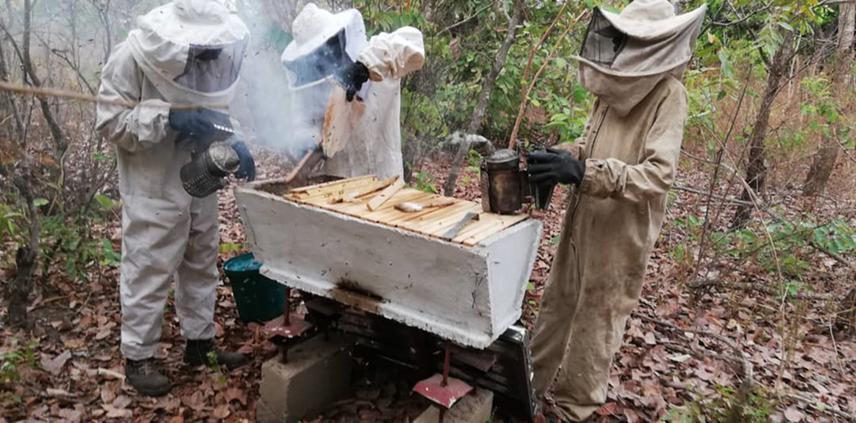Alix Frank Rodrigue Idohou
Other projects
7 Jul 2015
Combining Ecological Data and Local Community Participation to Set Long-Term Conservation Plans of the Dum Palm in Benin
25 Nov 2016
Assessment of Suitable Areas for Doum Palm Cultivation and Development of a Community Based Domestication Programme in Benin
12 Jun 2018
Participatory Actions towards Ecological Restoration of Agroforestry Systems Adjacent to the Biosphere Reserve of Pendjari in Benin
Agroforestry systems are nowadays highly contributing to biodiversity conservation while significantly limiting damages on protected areas. In most agroforestry systems, the farmers clear most species and keep only few of them. Consequently, the population of those species are highly decreasing, and ask for concrete actions. This study comes in continuation of the previous activities and aimed at enhancing the Pendjari national reserve conservation. Participatory approach will be used throughout the study in order to reverse the tendency towards to rapid loss of ecosystems, soils and associated biodiversity.

Illustration of beekeepers in activity
The biosphere reserve of Pendjari (North West Benin) is the first recognized biodiversity hotspot in West Africa (Africanparks.org). The ecosystem spans an area of 4,800 km2 and hold the last refuge of fauna in West Africa (Africanparks.org). Nevertheless, much of the species are often neglected in policy decisions and landscape strategies. The hunting zone is a semi-controlled occupation zone by local people (Djossa et al. 2008) used for agriculture and animal rearing. This is of growing concern as land degradation in riparian areas added to rocky and untillable soils lead the locals to make regular incursion in the hunting zone (limited access area). There, the farmers clear areas with most agroforestry species and keep few of them.
Consequently, the population of those species are highly decreasing, and ask for concrete actions. This situation contributes to weakening the ecological integrity of the reserve and leads to drastic resource depletion. A such, there is a need to reverse the situation as the reserve serves for tourism and provide locals with ecosystem services especially the economic and social value of the park (Vodouhê et al. 2009). This project plans to use a combination of methods to insufflate a new dynamic to the agroforestry systems adjacent to the national park of Pendjari in Benin.